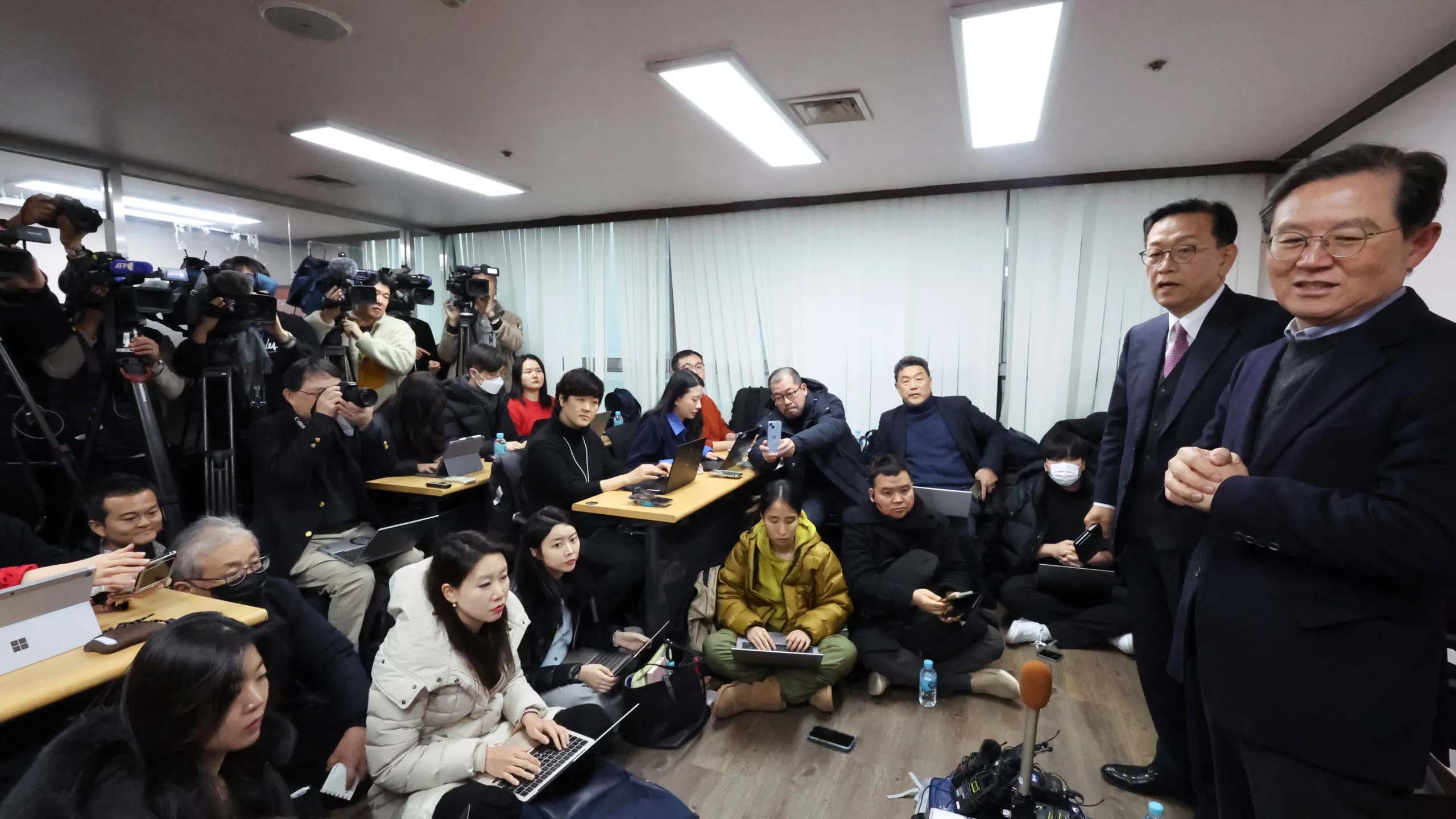SEOUL (South Korea), Jan 9: On Thursday, South Korean opposition parties proposed a bill demanding an independent inquiry regarding the brief martial law declaration made by impeached President Yoon Suk Yeol. This development comes as thousands of his supporters and opponents organized tense protests near his residence in anticipation of a potential detention.
The bill, submitted collectively by six parties, including the main liberal opposition group, the Democratic Party, suggests that a special prosecutor investigate whether Yoon’s martial law decree on December 3 amounted to an attempted coup.
Furthermore, the bill seeks to investigate allegations by the opposition that Yoon attempted to incite a confrontation with North Korea by supposedly deploying drones over Pyongyang or discussing the possibility of shooting down balloons laden with trash sent from North Korea, in a bid to justify a power grab domestically. Yoon’s legal team and the South Korean military have dismissed these suspicions.
Currently, Yoon is staying at his official residence in Seoul, where the presidential security service has reinforced the area with barbed wire and a line of vehicles blocking the streets, preparing for another possible law enforcement attempt to detain him following last week’s unsuccessful effort.
The Corruption Investigation Office for High-Ranking Officials, which is collaborating with police and military forces on the investigation, has committed to intensifying their efforts to detain Yoon. They also warned that members of the presidential security detail might face arrest if they obstruct the process of apprehending the beleaguered president.
Yoon’s legal representatives have argued against his custody, asserting that he poses no flight risk and will not destroy evidence. They contend that images of him being taken into custody could incite a “civil war” in the already divided nation.
During a press conference on Thursday, lawyer Seok Dong-hyeon from Yoon’s legal team emphasized the intense protests by Yoon’s supporters and stated that the anti-corruption office’s “reckless” efforts to detain Yoon would result in a “significant backlash from outraged citizens.”
“This would essentially provoke a civil war situation,” he claimed, arguing that attempts to arrest Yoon aim to humiliate him by parading him in handcuffs.
Separated by police barriers and fences, thousands of supporters and opponents of Yoon continued their daily demonstrations near his residence, vocalizing fervent slogans either vowing to defend him or demanding his ousting. While they occasionally exchanged verbal jabs, there were no immediate reports of significant violent confrontations.
The opposition has stressed that a thorough independent investigation is vital due to the challenges faced by various investigations conducted by the country’s anti-corruption agency and public prosecutors, largely attributed to Yoon’s lack of cooperation.
The new bill suggests that the Supreme Court’s chief justice should recommend two candidates to Yoon, who would then select one as the special prosecutor. Should Yoon refuse to appoint anyone, the elder of the two candidates would automatically take on the role.
An earlier proposal from the opposition for an independent investigation was dismissed by the National Assembly on Wednesday, as Yoon’s conservative party members opposed a clause that allowed only opposition parties to suggest candidates for the special prosecutor. That bill was defeated by merely two votes, and the Democrats are optimistic that the new bill will succeed.
Yoon’s legal team has raised questions regarding the validity of a fresh detention warrant issued on Tuesday by the Seoul Western District Court after the unsuccessful attempt to detain Yoon. They argue that the agency does not have the legal authority to investigate rebellion charges or to instruct police to detain suspects.
They have urged the agency to either indict the president or seek an official arrest warrant, a process that demands a court hearing. Nevertheless, the president has indicated that he would only comply with an arrest warrant issued by the Seoul Central District Court. His lawyers have accused the agency of purposefully selecting a court with a supposedly favorable judge.
Just hours after Yoon declared martial law and positioned troops around the National Assembly on December 3, lawmakers who managed to breach the barricades voted to rescind the measure. Yoon’s presidential powers were halted when the opposition-majority Assembly voted to impeach him on December 14, accusing him of rebellion.
The Constitutional Court is currently deliberating whether to formally remove Yoon from office or to reinstate him. (AP)


Leave a Reply